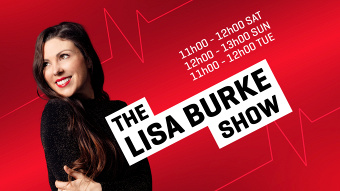Writing like a thought leader with Rhea Wessel


On the latest episode of The Lisa Burke Show, host Lisa Burke spoke with Rhea Wessel, an American journalist and strategist who founded the Institute for Thought Leadership.
Rhea Wessel is an American journalist, author, and educator based in Frankfurt. For many years, she has written reports for well-known media giants such as The New York Times, The Wall Street Journal and the BBC. Through this time, having spoken with thousands of experts in their field, Rhea noticed the difficulty in getting them to figure out what their main idea was, and how to write about it, delivering their unique understanding and knowledge to a much wider audience. And so she decided to map out her process so that we can all learn.
Rhea has written a book, Write like a Thought Leader, and also founded the Institute for Thought Leadership to share her process for bringing clear, engaging thought-leadership writing to a wider world.
What Is Thought Leadership
According to Rhea, thought leadership isn’t something we bestow unto ourselves but is a status acknowledge by others, earned by generously sharing unique, actionable ideas that help solve real problems. In Wessel’s words, a true thought leader “gives away their best ideas to help people” and builds trust through both generosity and consistency.
What makes a good idea?
Wessel identifies five essential qualities:
- Novelty
- Usefulness
- Clarity
- Brevity
- Zinger / wow effect
These attributes provoke the reader’s interest, solve a genuine challenge, and spark an ‘Aha!’ moment.
The Three-Step Process: Find It, Frame It, Flesh It Out
Rhea has developed an easy, three-step writing model, outlined in her book.
First, ‘Find It’: pinpoint your niche where deep expertise, true passion, and a unique viewpoint overlap. It has to come from the heart: intellectual curiosity matched with a drive to make a difference.
Second, ‘Frame It’: this is about journalistic story-framing, zooming in on the most original, relevant angle for your audience and knowing what to leave out, so the core idea shines. Wessel teaches a five-step story-framing system to help experts map their field and surface compelling, headline-ready story topics.
Finally, ‘Flesh It Out’: here, the focus shifts to execution. Wessel stresses writing with clarity, authenticity, and a conversational tone.
Short, Sharp, and Generous
In the shifting media landscape, where everyone from global corporations to solo-preneurs can shape conversations through digital articles (especially on platforms like LinkedIn), podcasts, and even short-form posts. Wessel advises budding thought leaders to start with several well-crafted articles (700–1100 words is ideal), focused on a single consistent theme, to build a visible ‘necklace’ of expertise.
Facing the Fears: Confidence, Consistency, and Courage
Sometimes psychological hurdles stop experts from writing: fear of giving away too much, imposter syndrome, perfectionism, or risking ridicule. Wessel’s coaching draws on techniques like free-writing, purpose work, and simply starting with a supportive friend or editor. She reframes her work as being a midwife for world-changing ideas that might otherwise stay locked in someone’s head.
The Role of AI: Friend, Not Replacement
While AI tools can help with idea scouting and drafting, Rhea cautions that a human voice, honed through personal experience and reflection, remains irreplaceable.
“AI can’t capture your true voice unless it has a body of work to learn from,” she notes, urging experts to first develop their unique style organically.
Giving Ideas Wings
Rhea’s final clear encouragement: start articulating what matters most, seek out genuine feedback, choose the format that suits your strengths, and do the work of clarifying your message. True thought leadership is about service, not ego—it’s helping audiences navigate complexity through clarity and trust.
In today’s world, those trusted voices are needed now more than ever.









